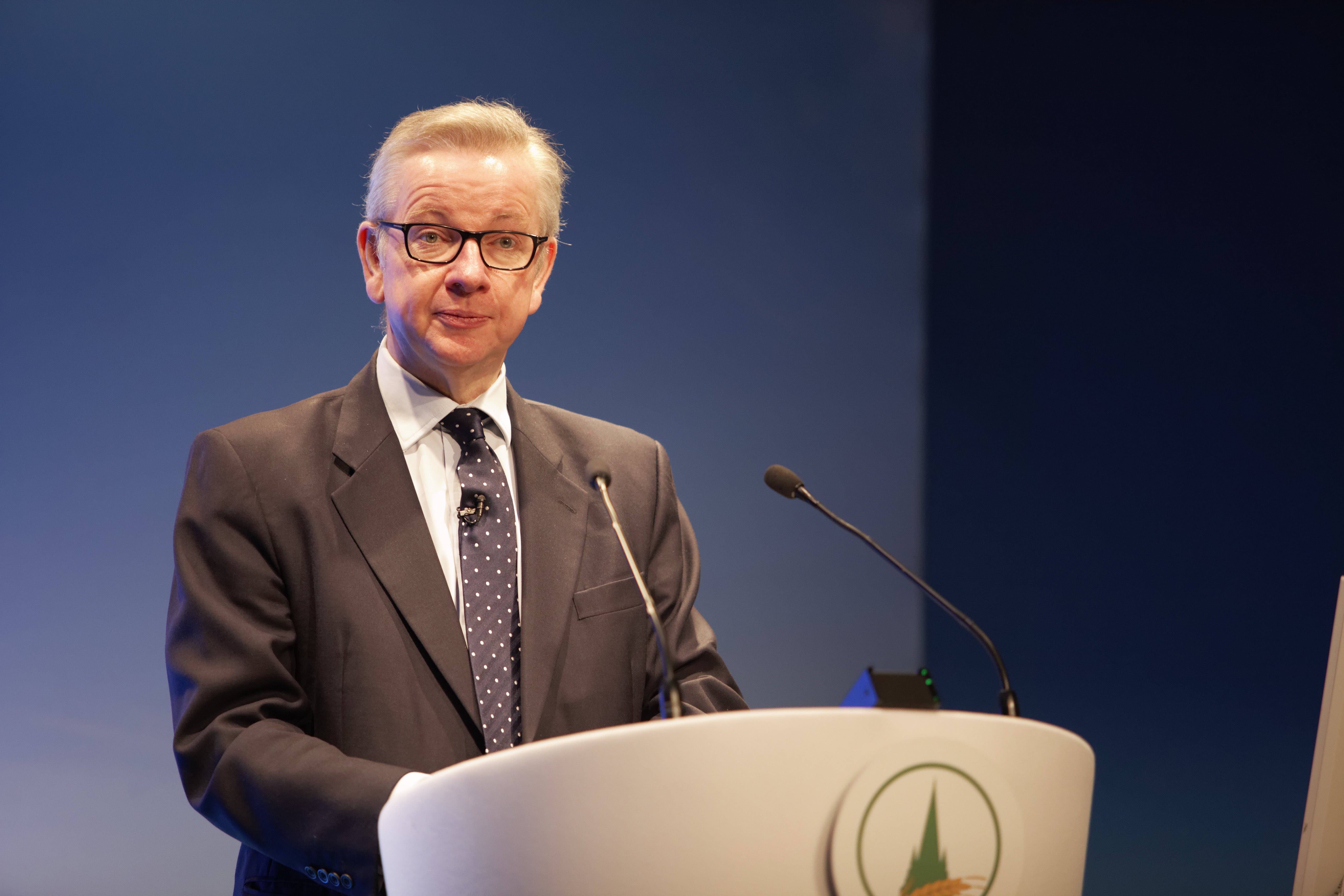The British Government’s Food, Farming and Environment Minister, Michael Gove, has promised to deliver an ambitious new UK food strategy in 2019, embrace a properly funded 25-year environment plan and commit to rising investments in agritech.
Speaking at yesterday’s Oxford Farming Conference, when Britain’s political and farming leaders gather in the ancient University City for their annual assessment of the year ahead, Mr Gove urged delegates to prepare for a new agricultural revolution with the UK grasping the opportunity to lead the world in the development of new food and farming technologies.
“Accelerating technological advances such as artificial intelligence, more sophisticated big data analysis, drone development, machine learning, and robotics will together allow us to dramatically improve productivity on traditionally farmed land,” he said.
Such advances, he added, could also bring significant environmental gains, helping to minimize the imprint of vehicles on the soil, enabling inputs to be applied more precisely and adjusting cultivation techniques to require the use of far fewer natural resources, whether carbon, nitrogen or water, in order to maximize growth.
He also spoke positively on the need for an increased role to be found for vertical farming developments, aquaculture and cellular agriculture, alongside advances in synthetic biology to allow future producers to create traditional animal products – from gelatine and egg whites to milk and even meat – under laboratory conditions.
In each case, however, he warned that new costs would arise as each new technology was embraced.
“Taking advantage of precision technology, AI, robotics and data analytics requires a level of capital investment which is not available to all,” he said. “Vertical farming, for example, relies on energy inputs which are currently costly and carbon-intensive.
“Fish farming, of course, generates its own environmental externalities, while lab-grown proteins are very far from everyone’s idea of a mouth-watering treat – and are currently extremely expensive.
“But, while there are big questions that we need to debate, we cannot wish away such changes any more than we can ignore having to deal with the impact of climate change, air pollution, soil depletion, global population growth, the stress placed on water resources, the tide of plastic in our oceans, deforestation and biodiversity loss.”
Focusing on the need to use less carbon in food production, to limit nitrous oxide entering the atmosphere and nitrates entering river systems, he said that farmers needed to work to improve the organic content and fertility of our soils, while also seeking to renew, reuse and recycle finite natural resources.
“Our new agricultural revolution will require us to change the way we work on the land and how we invest in its future,” said Mr Gove. “It will force us to reform the role of Government in regulating and supporting farming; will demand new thinking and new talent in food production, and will, inevitably, require tough choices to be made. For some, the adjustment will be undoubtedly challenging, but no change is not an option.”
Urging his audience to be entirely positive about their future, he presented the vision of the UK as a major global food producer, fully equipped to play its part in alleviating poverty and scarcity, while helping to replenish the world’s store of natural capital and securing investment for innovations in tackling waste, pollution and damaging emissions.
“Food production has long been a success story for Britain,” he said. “Food and drink is our biggest manufacturing sector, with our food and drink contributing £113 billion ($143 million) to the economy every year. Consumers have benefited from the enterprise and innovation of our food producers with British citizens having a wider choice of high-quality food than ever before, all with the cost of food having fallen significantly in recent decades.
“We have safe, nutritious, affordable food in abundance in this country because of our farmers – their hard work, enterprise and commitment.”
Going on to acknowledge, however, that farmers themselves weren’t as well rewarded as they should be for achieving such progress, he called for a serious rethink on what was needed concerning the future of food.
“This is why I recently appointed food entrepreneur, Henry Dimbleby, to lead the development of a new UK Food Strategy,” said Mr Gove. “He will be visiting farms and food producers this year, working with people across the industry to ensure we ask the right questions as a Government.
“I see our Food Strategy as another opportunity for Britain to show a lead in this world of opportunity, driven by a new generation of farmers, scientists, bio and agri-tech entrepreneurs who are already reinforcing Britain’s reputation as a centre of excellence in innovation. That is our goal for the future.”
Image: Oxford Farming Conference





